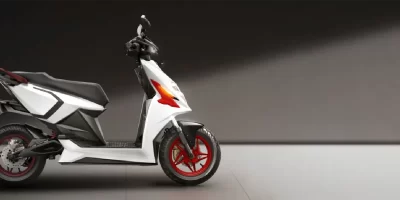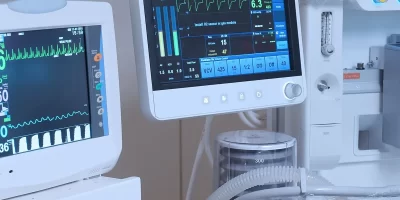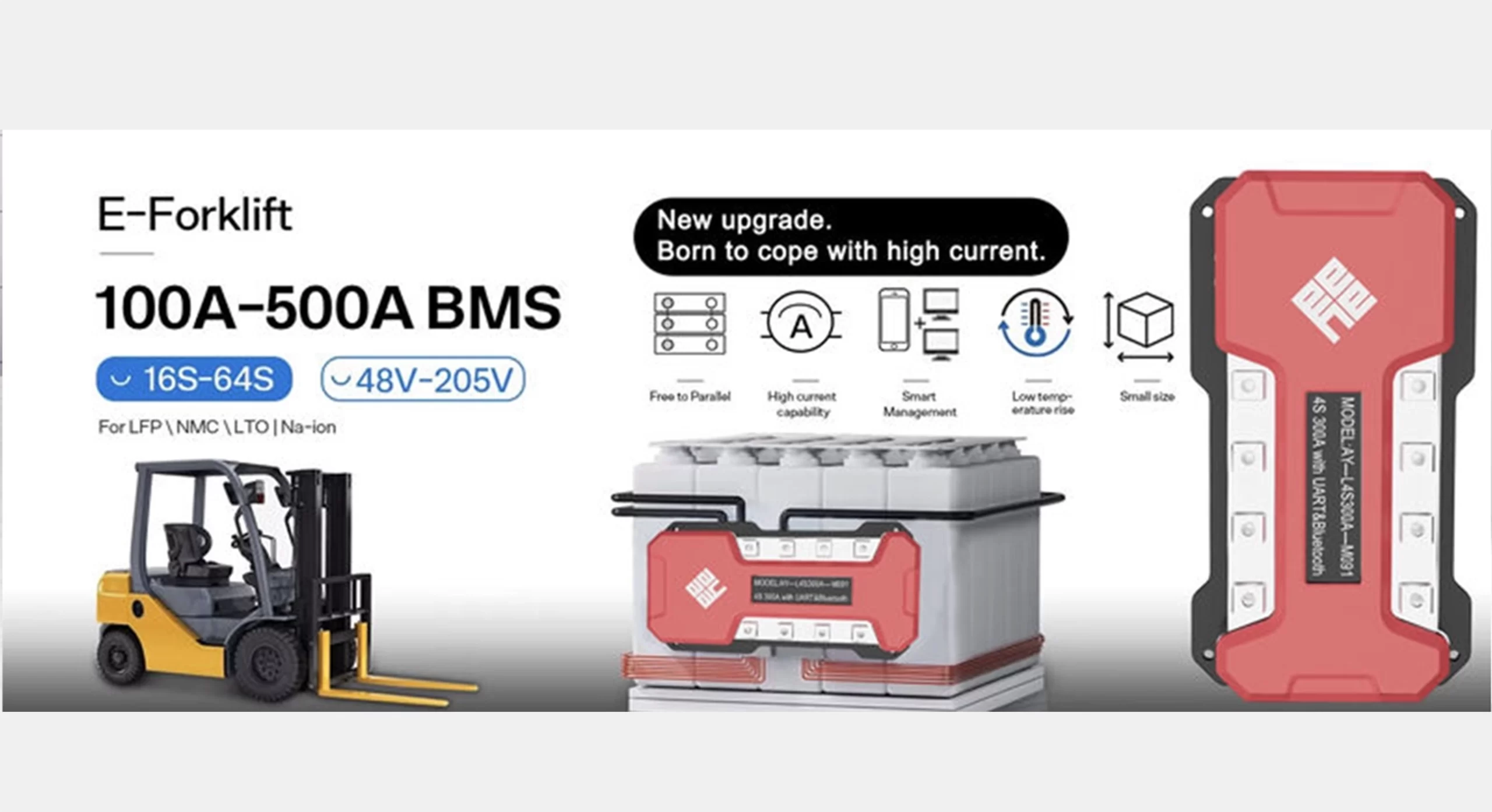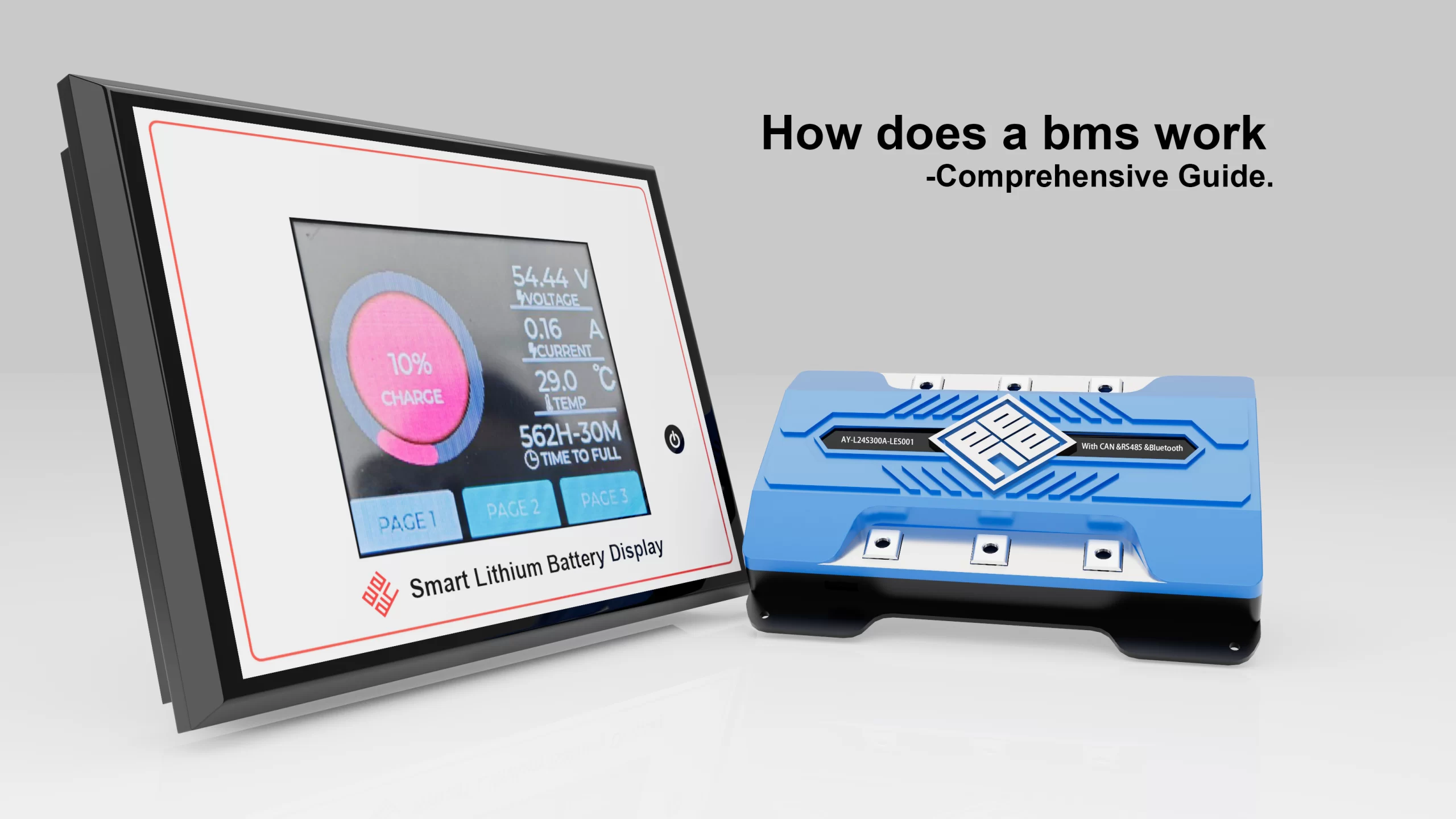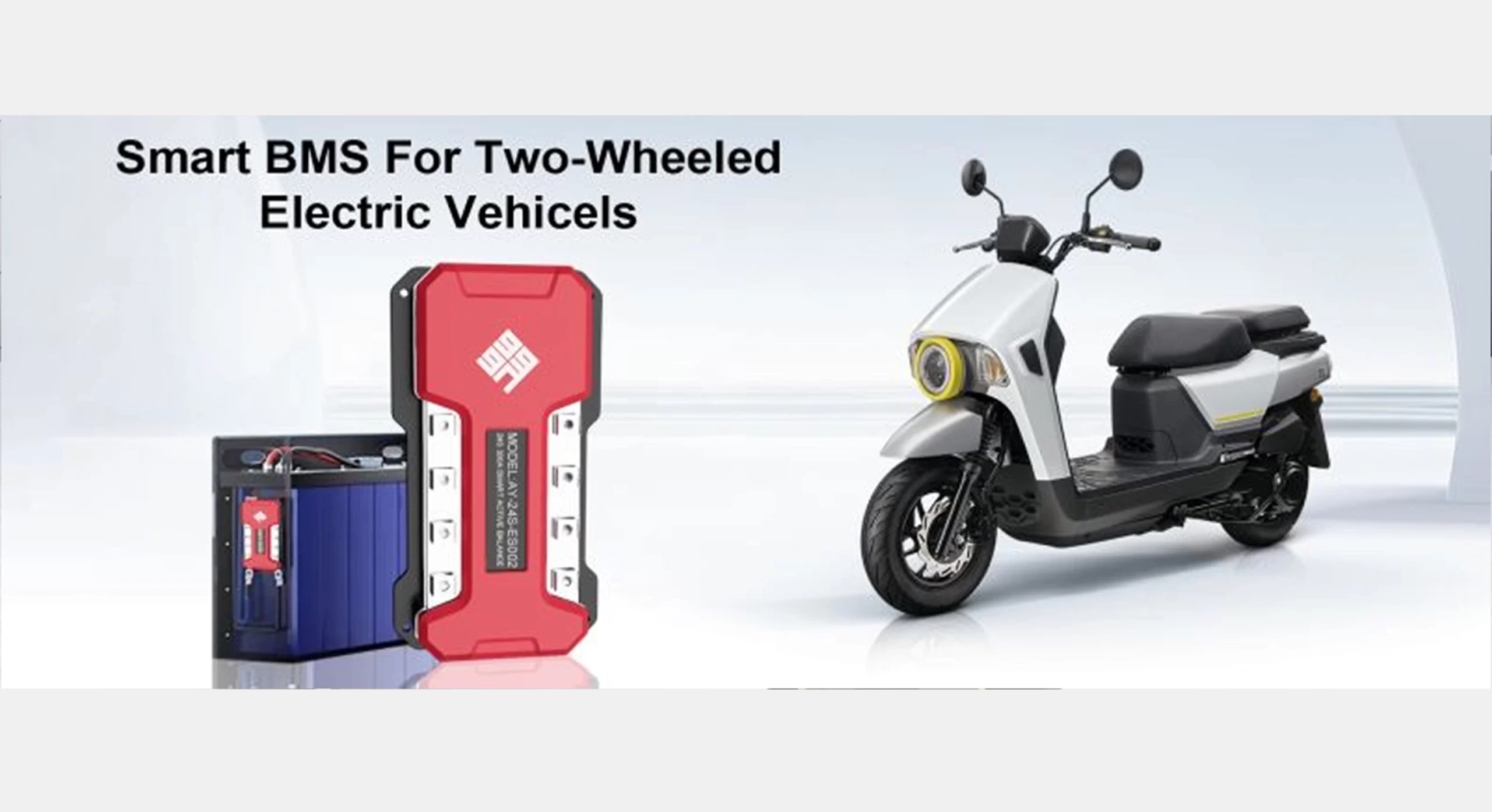The Role of BMS for Lithium Ion Batteries in Optimizing Performance and Ensuring Safety
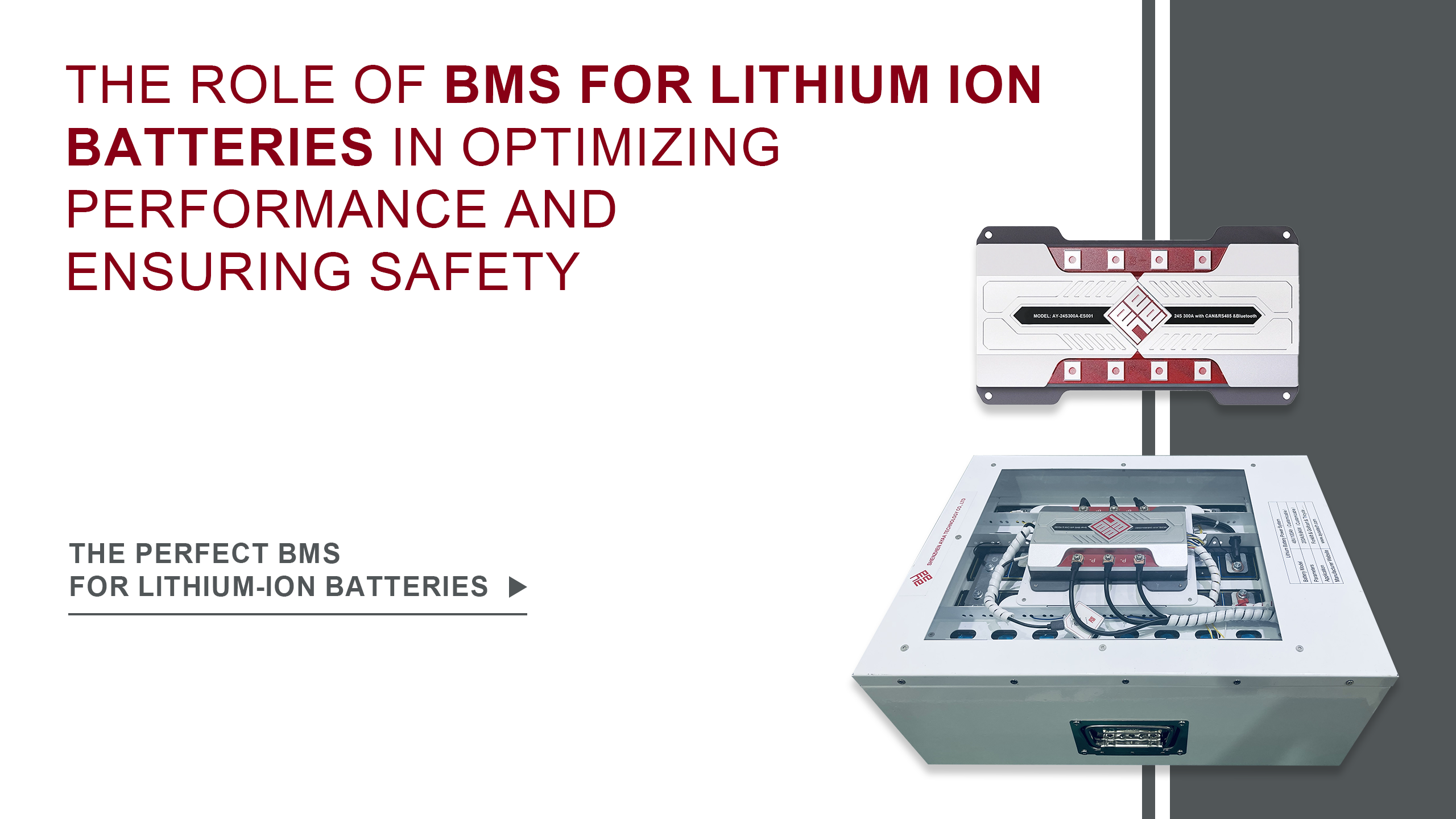
Lithium-ion batteries have become a key component in today’s quickly changing energy landscape, powering everything from portable gadgets to renewable energy storage and electric vehicles (EVs). The Battery Management System (BMS) is essential to making sure these batteries run effectively, consistently, and safely. In particular, a well-thought-out maintenance management system for lithium-ion batteries can enhance battery performance and avert possible risks. The BMS is essential to the fundamental operation, design, and use of lithium-ion battery systems.
What Is a BMS for Lithium Ion Batteries?
A bms for lithium ion batteries is an electronic system designed to monitor, manage, and protect lithium-ion battery packs.Its primary duties include making sure batteries operate at their best, extending their lifespan, and avoiding dangerous situations like short circuits, overcharging, and overheating. Despite having a high energy density and efficiency, lithium-ion batteries are naturally sensitive to their operating environment. These batteries are susceptible to deterioration, decreased performance, and safety hazards in the absence of an appropriate BMS.
As the “brain” of the battery pack, the BMS continuously gathers information on temperature, voltage, current, and state of charge (SOC). It uses sophisticated algorithms to process this data in order to control charge and discharge cycles, preserve cell balance, and notify users or systems of abnormalities. In essence, a bms for lithium ion batteries is indispensable for unlocking the full potential of lithium-ion technology in various applications.
Structure and Components of a BMS for Lithium Ion Batteries
A typical bms for lithium ion batteries consists of multiple key components that work together seamlessly:
- Voltage Sensors: Monitor individual cell voltages to detect imbalances.
- Current Sensors: Measure charge and discharge currents to prevent overload.
- Temperature Sensors: Track battery temperature to avoid overheating.
- Microcontroller Unit (MCU): The core processor that runs battery management algorithms.
- Cell Balancing Circuits: Ensure uniform charge levels across all cells.
- Communication Interface: Allows data exchange with external devices via protocols like CANBUS or SMBUS.
These parts work together to provide real-time battery management through integrated hardware and advanced software. Precise data is captured by the hardware, and it is interpreted by the software to maximize efficiency and implement safety measures.
How a BMS for Lithium Ion Batteries Works: Key Principles
The working principle of a bms for lithium ion batteries centers around continuous monitoring and control:
- State Estimation:The BMS calculates the battery pack’s state of health (SOH) and state of charge (SOC) based on temperature, voltage, and current data. Accuracy is improved by sophisticated algorithms, allowing for exact energy management.
- Cell Balancing:The BMS uses passive or active balancing strategies since even small changes in cell capacity can cause imbalance. This prolongs battery life and avoids premature failures by balancing the voltage and charge levels.
- Charge/Discharge Control:The BMS controls discharging to prevent deep discharge and regulates charging to prevent overvoltage circumstances, both of which can harm lithium-ion cells.
- Safety Protection:When fault circumstances like overcurrent, short circuits, or extremely high or low temperatures are detected by the system, preventative actions like disconnecting the battery or lowering the load are initiated.
Through these mechanisms, a Lithium-ion Battery BMS ensures the battery operates within safe and optimal parameters, maximizing energy efficiency and longevity.
Applications of BMS for Lithium Ion Batteries
Lithium-ion batteries’ adaptability spans numerous industries, and the BMS is essential to each one:
- Electric Vehicles (EVs):Because EVs require dependable, high-capacity battery packs, BMS is essential for longevity, safety, and performance improvement. A robust bms for lithium ion batteries helps monitor battery health, manage thermal conditions, and improve driving range.
- Energy Storage Systems:Applications for renewable energy and grid storage depend on BMS to control charging cycles, balance cells, and preserve system stability.
- Consumer Electronics:Compact and effective BMS solutions are necessary for portable devices in order to safeguard battery packs and extend runtime.
Shenzhen Ayaa Technology Co., Ltd. specializes in delivering customized bms for lithium ion batteries tailored for these varied applications, offering scalable solutions that meet stringent industry requirements.
Key Features of a Modern BMS for Lithium Ion Batteries
Modern Lithium-ion Battery BMS incorporate advanced features to meet the growing demands of high-performance energy systems:
- High-Precision Data Acquisition:Battery characteristics are monitored in real time thanks to precise sensing components.
- Smart Algorithms:Predictive maintenance and state estimates are enhanced by machine learning and adaptive algorithms.
- Safety Mechanisms:Multiple layers of defense against thermal and electrical risks.
- Connectivity:By enabling remote monitoring and analytics through integration with cloud and IoT platforms, operational transparency is improved.
By utilizing these characteristics, businesses such as Shenzhen Ayaa Technology Co., Ltd. offer BMS solutions that give users control and actionable data in addition to protecting batteries.
Best Practices and Considerations for Using a BMS for Lithium Ion Batteries
To maximize the benefits of a Lithium-ion Battery BMS, proper installation, usage, and maintenance are essential:
- Installation Safety:To avoid wiring mistakes and guarantee secure connections, according to the manufacturer’s instructions.
- Environmental Considerations:Make use of BMS models made to resist mechanical forces and extremes in temperature.
- Firmware Updates:Update BMS software frequently to apply the most recent security patches and enhancements.
- Preventive Maintenance:Regular system calibrations and inspections prolong battery life and aid in the early detection of problems.
Shenzhen Ayaa Technology Co., Ltd. provides technical assistance and professional advice to clients at every stage of the product lifecycle to guarantee peak BMS performance.
Maintenance and Longevity of Lithium-ion Battery BMS
Sustaining the performance of the lithium-ion battery and its management system requires proper maintenance. Important upkeep tasks consist of:
- Regular diagnostics to assess system responsiveness and sensor accuracy.
- State estimation techniques are adjusted to account for battery aging.
- Hardware examinations to find damage or wear.
- Adjusting software according to usage trends.
By following these guidelines, users can greatly increase the battery systems’ lifespan and prevent expensive malfunctions.
Why Choose Shenzhen Ayaa Technology Co., Ltd. for Your BMS Needs?
As a globally recognized leader in battery management technology, Shenzhen Ayaa Technology Co., Ltd. offers a comprehensive portfolio of Lithium-ion Battery BMS engineered for safety, reliability, and efficiency. With over 20 years of industry expertise, the company delivers tailored solutions spanning electric vehicles, energy storage, medical devices, and more.
Their products feature:
- Modular designs for flexible integration
- Support for CANBUS, SMBUS, and Bluetooth communication
- High current ratings up to 320A
- Both passive and active balancing technologies
Access to state-of-the-art BMS innovations supported by attentive customer care and strict quality control is ensured by partnering with Shenzhen Ayaa Technology.
FAQ
Q:Is BMS necessary for lithium ion battery?
A:It is a crucial component of contemporary battery technology, especially for applications involving lithium-ion batteries. Among the various duties of the BMS is the monitoring of each cell’s temperature, voltage, state of health (SOH), and state of charge (SOC) in a battery pack.
Q:Can you reset BMS on lithium battery?
A:Disconnect and Reconnect: Usually, all it takes to reset the system is to disconnect the battery from the BMS and then reconnect it a little while later. This allows the BMS to recalibrate and fix any transient problems.
Q:Can you overcharge a lithium battery with a BMS?
A:Lithium batteries are shielded from overcharging by the Battery Management System (BMS). An electrical system called a BMS keeps an eye on and controls a number of battery-related functions. Among its primary duties are: Voltage Monitoring: Every cell in the battery pack has its voltage levels continuously monitored by the BMS.
In summary, the bms for lithium ion batteries is a foundational technology that enables the safe, efficient, and reliable operation of lithium-ion battery systems. The BMS prolongs battery life and maximizes performance by controlling charging and discharging, balancing cells, and guarding against dangerous situations.
Shenzhen Ayaa Technology Co., Ltd. stands out as a reliable partner for companies and manufacturers looking for BMS solutions, providing cutting-edge products made to satisfy the various demands of the current energy storage and electric mobility markets.





